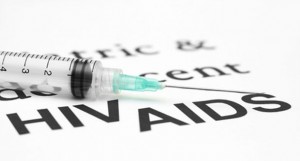DOH: No shortage of HIV meds
MANILA, Philippines—The Department of Health (DOH) has assured people afflicted with the human immunodeficiency virus (HIV) that there is enough supply of the antiretroviral (ARV) drug.

ARV treatment is a combination of medications to delay the progress of the HIV infection and the onset of full-blown acquired immune deficiency syndrome (AIDS) which is fatal.
Several HIV patients receive free ARV treatment from the health department. However, some of them said a lack of ARV supplies the past weeks had prompted them to skip taking the medicines, while others said they were asked to switch to other medicines.
“[But it’s] difficult to switch meds due to the side effects,” one patient said.
Lee Suy assured the patients the problem had been addressed.
Article continues after this advertisement“Actually, it didn’t reach the point of a shortage. Based on our guidelines, we should be maintaining a certain level or amount of the medicine. It almost got to that point, but it has already been addressed,” he said, explaining that the problem stemmed from the delayed delivery of the supply.
Article continues after this advertisement“[The problem] was more of logistics, but it’s not a major concern. We have enough medicines,” Lee Suy added.
The Global Fund to Fight Aids, Tuberculosis and Malaria is the primary source of the free ARV drugs.
From 1984 to March this year, there were 17,948 HIV cases recorded in the country.
The DOH is seriously pushing for the amendment of Republic Act No. 8504 or the Philippine AIDS Prevention and Control Act of 1998 in order to allow the implementation of mandatory human immunodeficiency virus screening, particularly for high-risk groups. Tina G. Santos
RELATED STORIES
HIV cases rose 43% to 486 in February; 16 AIDS deaths reported — DOH
DoH pushes for mandatory HIV/AIDS testing for high-risk sectors
One Filipino gets HIV virus every 1.5 hours, group says